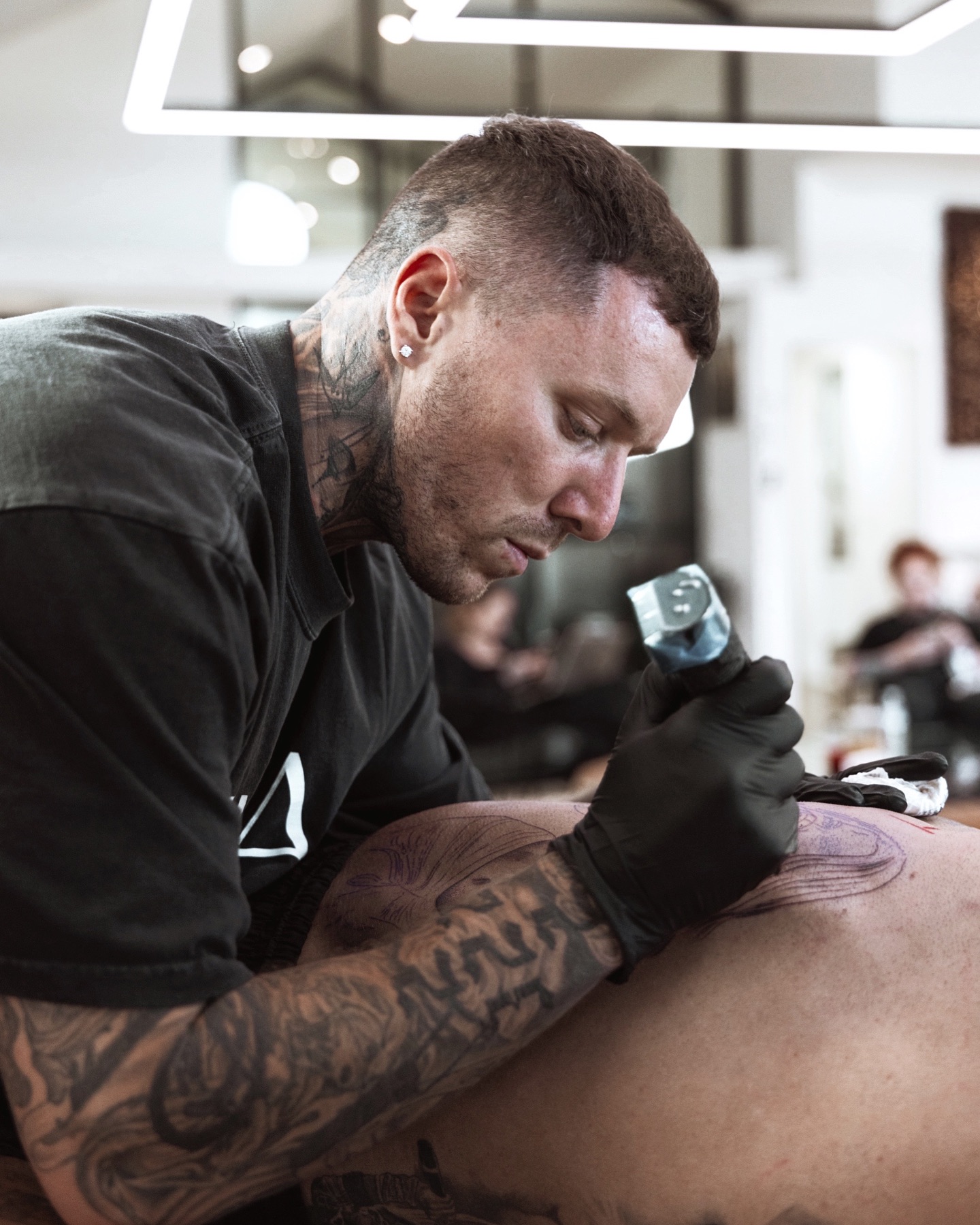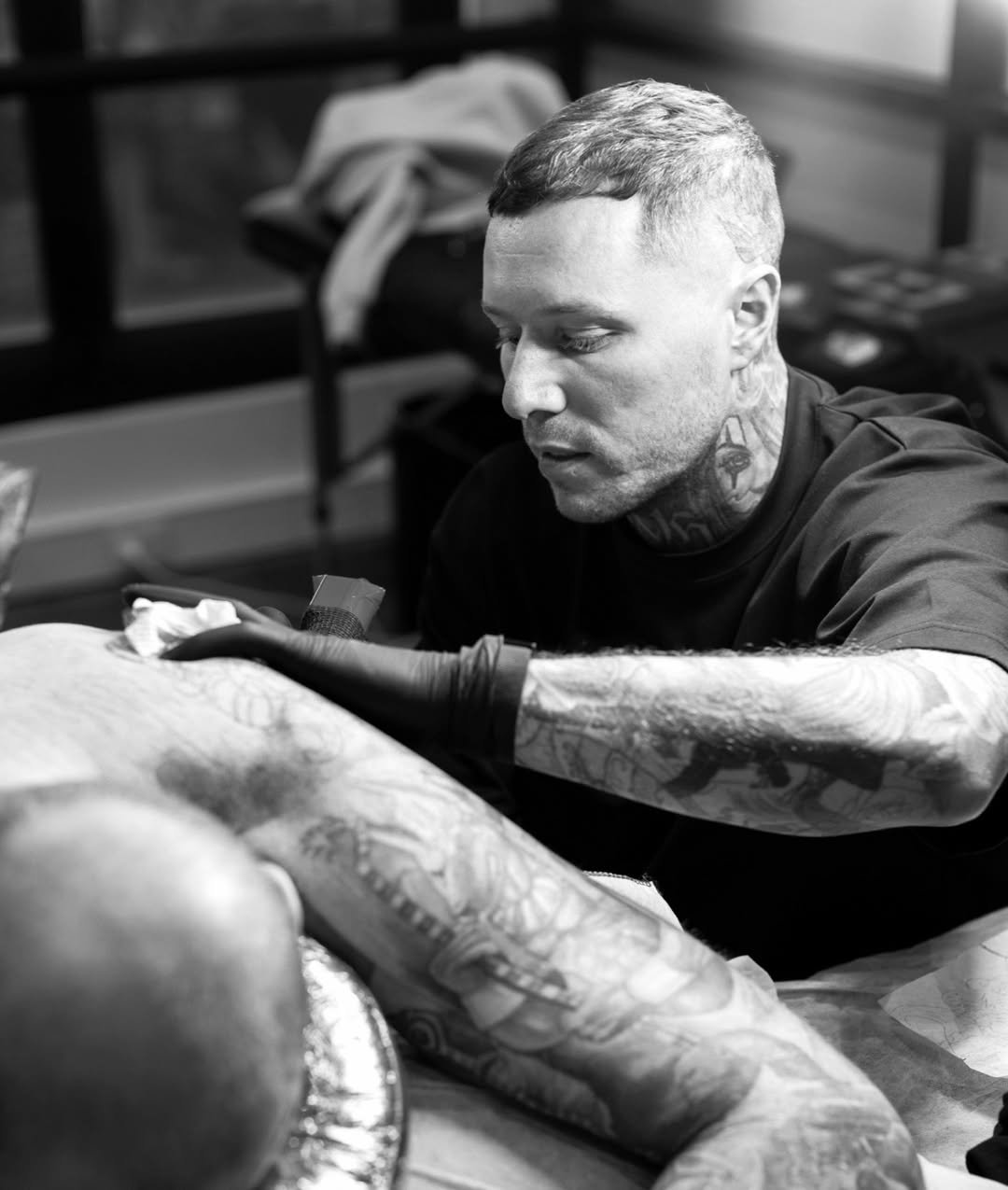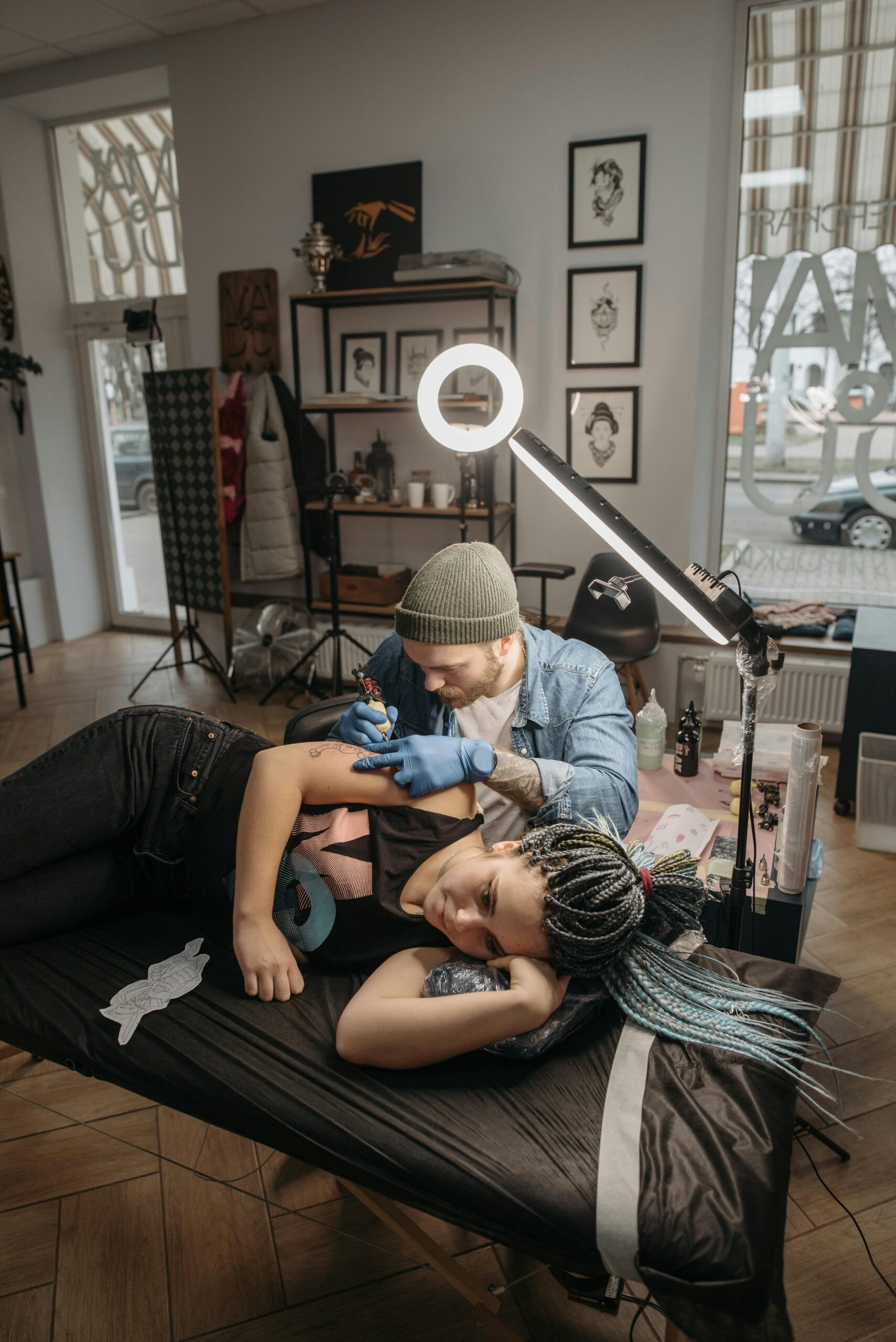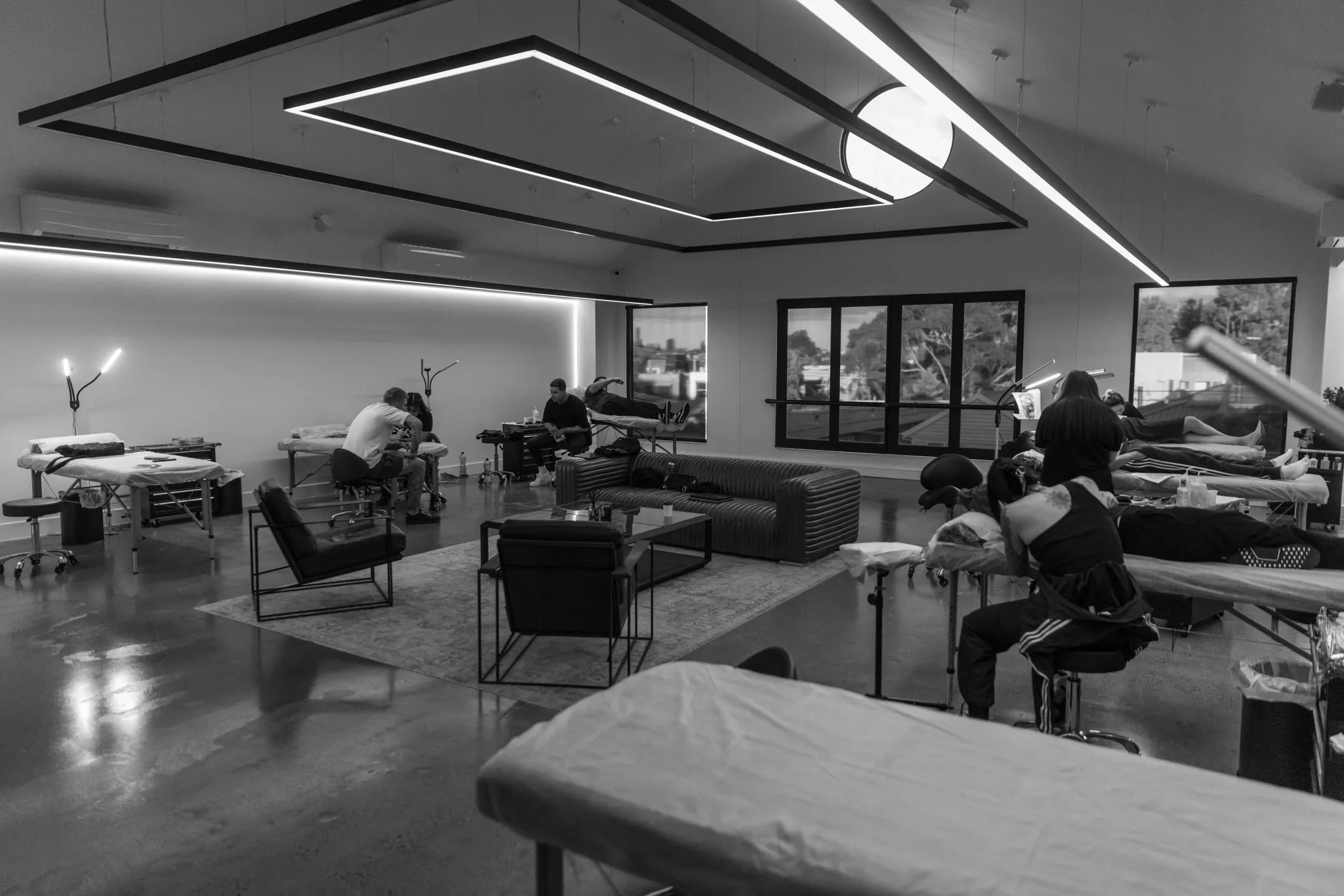The Hidden Economics of Traditional Tattoo Apprenticeships
The romanticised image of tattoo apprenticeships—learning at the feet of masters, absorbing wisdom through observation—crashes against modern economic reality. Traditional apprenticeships in Australia typically demand 2-3 years of unpaid or minimum-wage labour while apprentices struggle financially, often working second jobs to survive. Meanwhile, the tattoo industry desperately needs qualified artists, with wait times for appointments stretching months at popular studios.
The financial sacrifice of traditional apprenticeships extends beyond lost wages. Apprentices invest in equipment without earning opportunities, pay for their own practice materials, and often provide free labour for studio maintenance and reception duties. When calculated properly, a traditional apprenticeship costs apprentices $50,000-$100,000 in lost earnings over three years, not including equipment and material investments.
This outdated model made sense when tattooing knowledge was closely guarded and learning required physical proximity to experienced artists. Today, with high-definition video technology, online communities, and comprehensive educational platforms, the justification for years of unpaid labour has evaporated. An online tattoo course delivers the same technical knowledge and practical skills in 6 months that apprenticeships stretch across years.
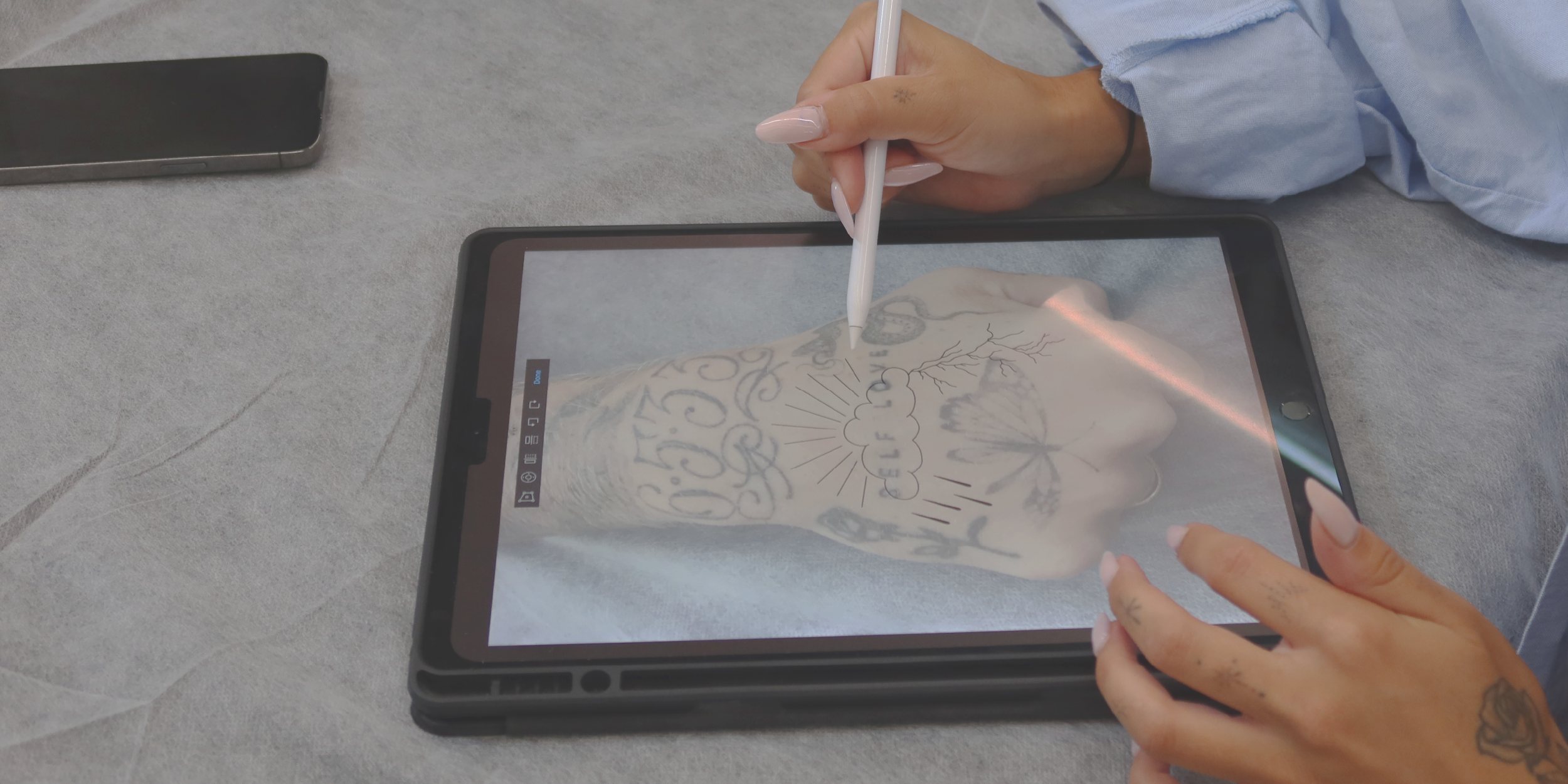
Time Investment: 6 Months vs 3 Years
Traditional apprenticeships follow an intentionally slow progression designed more for studio benefit than educational efficiency. The typical timeline involves 6-12 months of observation and shop duties before touching a tattoo machine, another year of supervised practice on willing friends, and a final year gradually taking paying clients under strict supervision.
Online tattoo courses compress this timeline dramatically without sacrificing skill development. Students begin handling equipment immediately, practice on synthetic skin from week one, and progress through techniques systematically. The focused curriculum eliminates time spent on non-educational tasks like cleaning, reception work, and coffee runs that consume most apprenticeship hours.
The structured online learning environment actually accelerates skill development compared to the sporadic teaching moments in busy studios. While apprentices might wait weeks between learning opportunities, online students access comprehensive lessons daily, practice at their optimal times, and receive consistent feedback from dedicated instructors.
By month six, online tattoo course graduates possess the technical skills, health and safety knowledge, and portfolio development that traditional apprentices might not achieve until year two or three. This acceleration doesn’t compromise quality—it eliminates inefficiency.
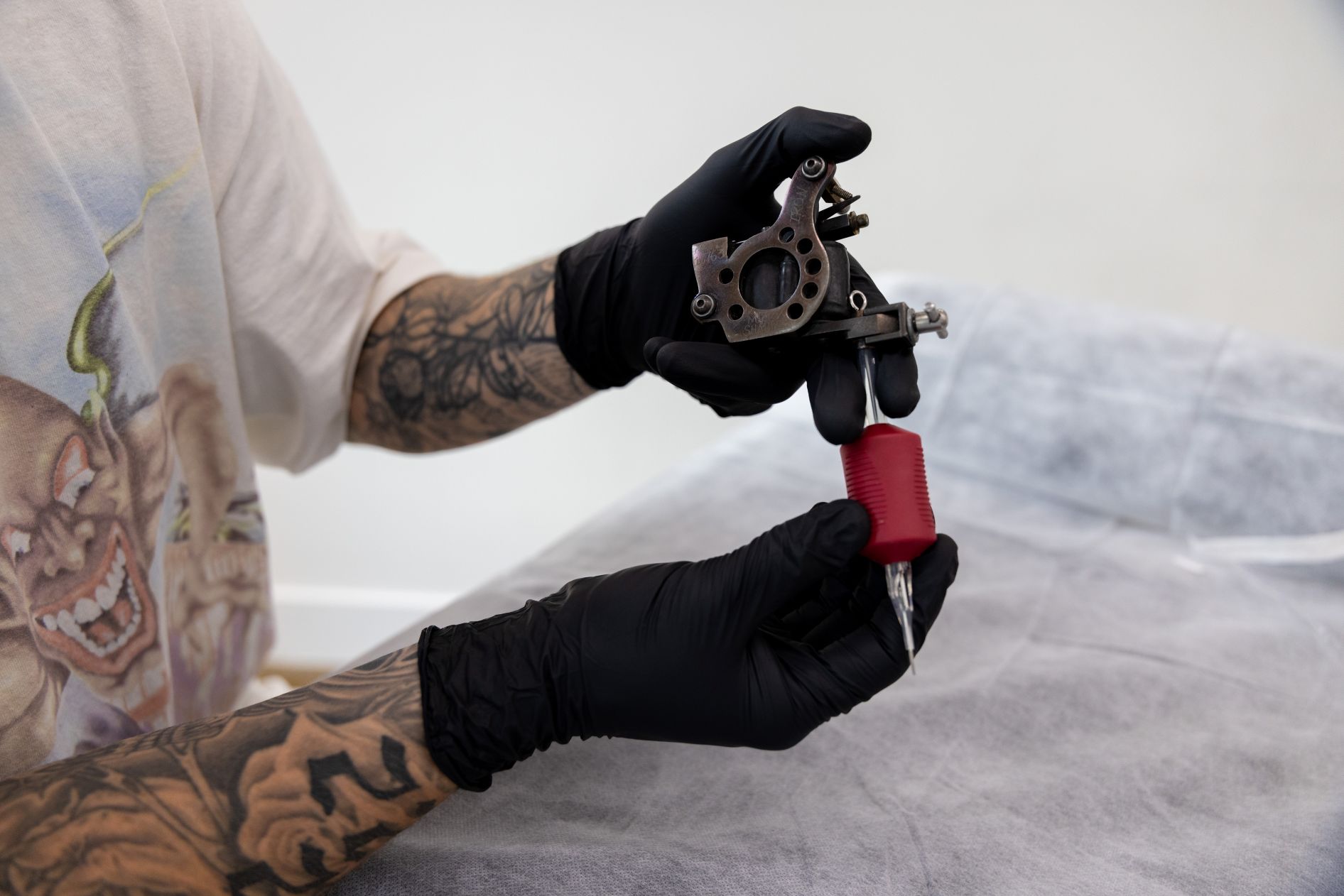
Financial Reality: Earning While Learning
The most significant advantage of online tattoo courses involves the ability to maintain income while studying. Students keep their current jobs, study during evenings and weekends, and transition gradually into tattooing as skills develop. This approach eliminates the financial pressure that forces many talented apprentices to abandon their dreams.
Consider the mathematics: A traditional apprentice sacrifices $35,000-$50,000 annually in potential wages [based on Australian minimum wage and average full-time earnings data]. Over three years, this represents $105,000-$150,000 in lost income. Add equipment costs, practice materials, and living expenses covered through second jobs, and the real cost exceeds $150,000.
Online tattoo course students invest $3,000-$5,000 in comprehensive education, have their equipment included in the course costs, and maintain their income throughout training. They begin earning from tattoo work within 6-12 months, often recovering their entire investment within the first year of practice. The financial advantage is undeniable—online students are $100,000+ ahead before traditional apprentices complete training.
Payment flexibility through plans starting at $40 weekly makes online education accessible regardless of current financial situation. Compare this to the requirement of supporting yourself unpaid for years, and the accessibility difference becomes stark.
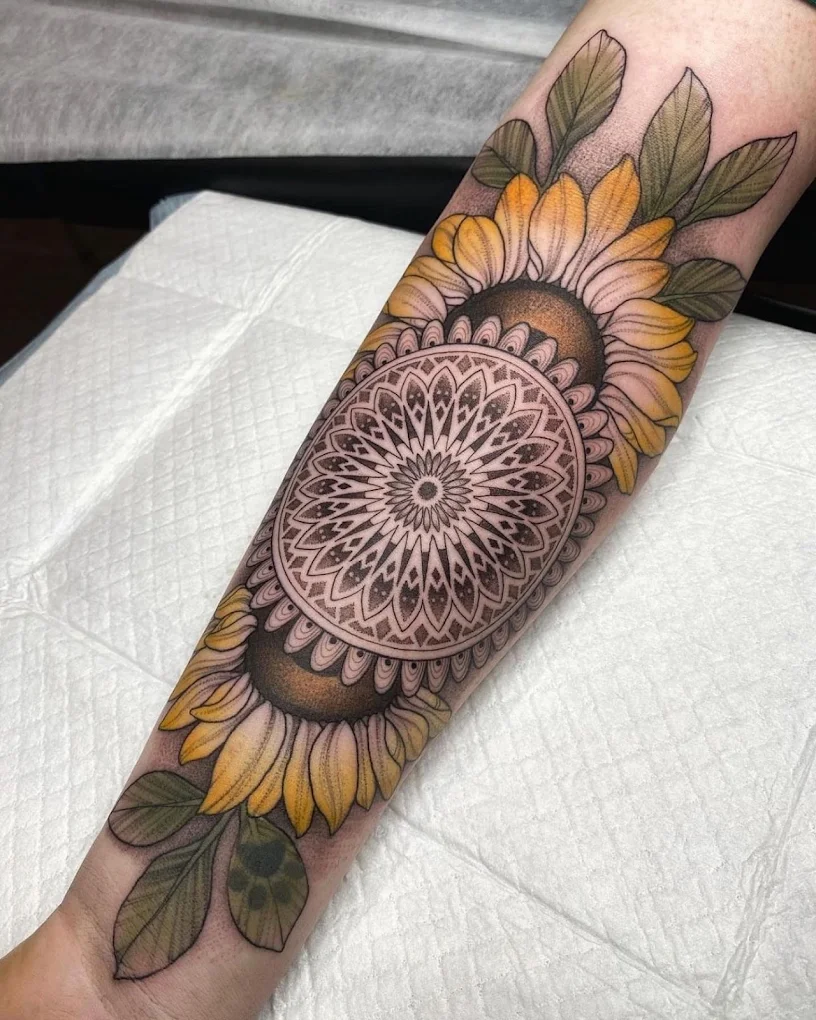
Quality of Education: Structured vs Sporadic
Traditional apprenticeships suffer from inconsistent education quality depending entirely on mentor availability, teaching ability, and willingness to share knowledge. Many experienced tattooers, while talented artists, lack pedagogical skills to effectively transfer knowledge. Apprentices often learn through observation and mimicry rather than structured explanation and systematic skill building.
Online tattoo courses provide curriculum developed by education professionals in collaboration with industry experts. Every lesson is carefully crafted, consistently delivered, and comprehensively explained. Students access the same high-quality instruction regardless of location, timing, or instructor mood.
The ability to replay demonstrations unlimited times surpasses watching once over someone’s shoulder in a busy studio. Slow-motion video reveals subtleties of hand movement and needle angle invisible in real-time observation. Multiple camera angles show technique from every perspective. This technological advantage accelerates learning and improves retention.
Comprehensive online courses cover business skills, marketing, client relations, and financial management—crucial knowledge often neglected in traditional apprenticeships focused solely on technical skills. Graduates emerge as complete professionals, not just technicians.
Geographic Freedom and Accessibility
Traditional apprenticeships require relocating to wherever positions exist, often in major cities with high living costs. This geographic limitation excludes talented individuals from regional areas, those with family obligations, and anyone unable to relocate for extended periods. The tattoo industry loses countless potential artists to geographic barriers.
Online tattoo courses eliminate location restrictions entirely. Students in rural Queensland access the same quality education as those in Sydney. Parents study after children sleep. Full-time workers learn during lunch breaks. The democratisation of tattoo education opens the profession to diverse voices and perspectives previously excluded.
This geographic freedom extends beyond learning to practice. Online course graduates can establish studios anywhere, bringing professional tattoo services to underserved regional areas. They’re not bound to cities where they apprenticed but free to practice wherever opportunity or lifestyle preferences lead.
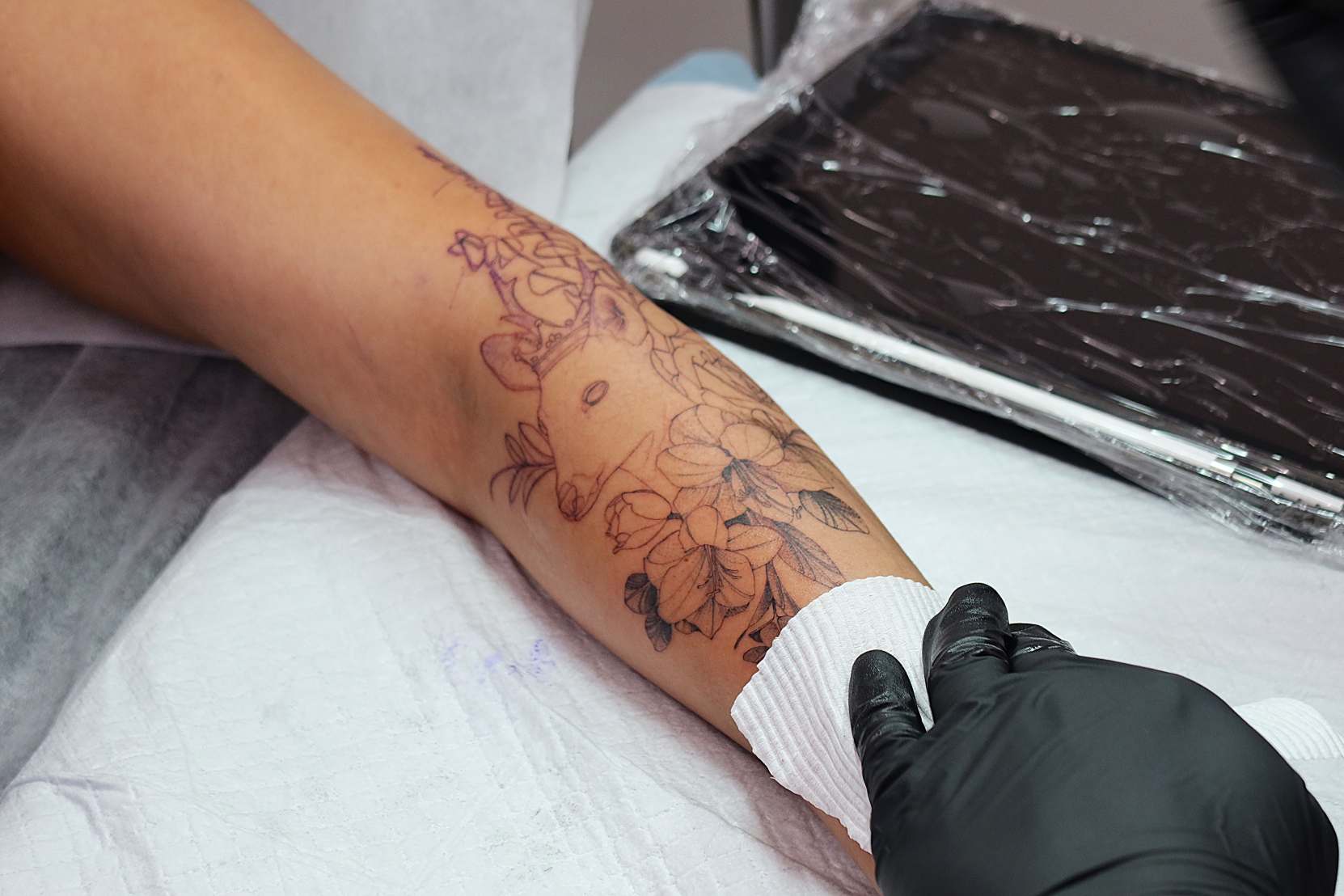
Industry Recognition and Employment Outcomes
The tattoo industry increasingly recognises online education validity as graduate quality speaks for itself. Studios report that online course graduates often arrive better prepared than traditional apprentices, with stronger foundational knowledge and professional presentation skills.
Portfolio quality matters more than education method when seeking employment or building clientele. Online course graduates develop comprehensive portfolios throughout training, documenting progress and demonstrating capabilities. The structured approach to portfolio development often produces stronger presentation materials than the scattered work of traditional apprenticeships.
Many studios now prefer hiring online course graduates who’ve demonstrated self-motivation and commitment by investing in their education. The ability to learn independently translates into continued professional development and adaptation to studio requirements.
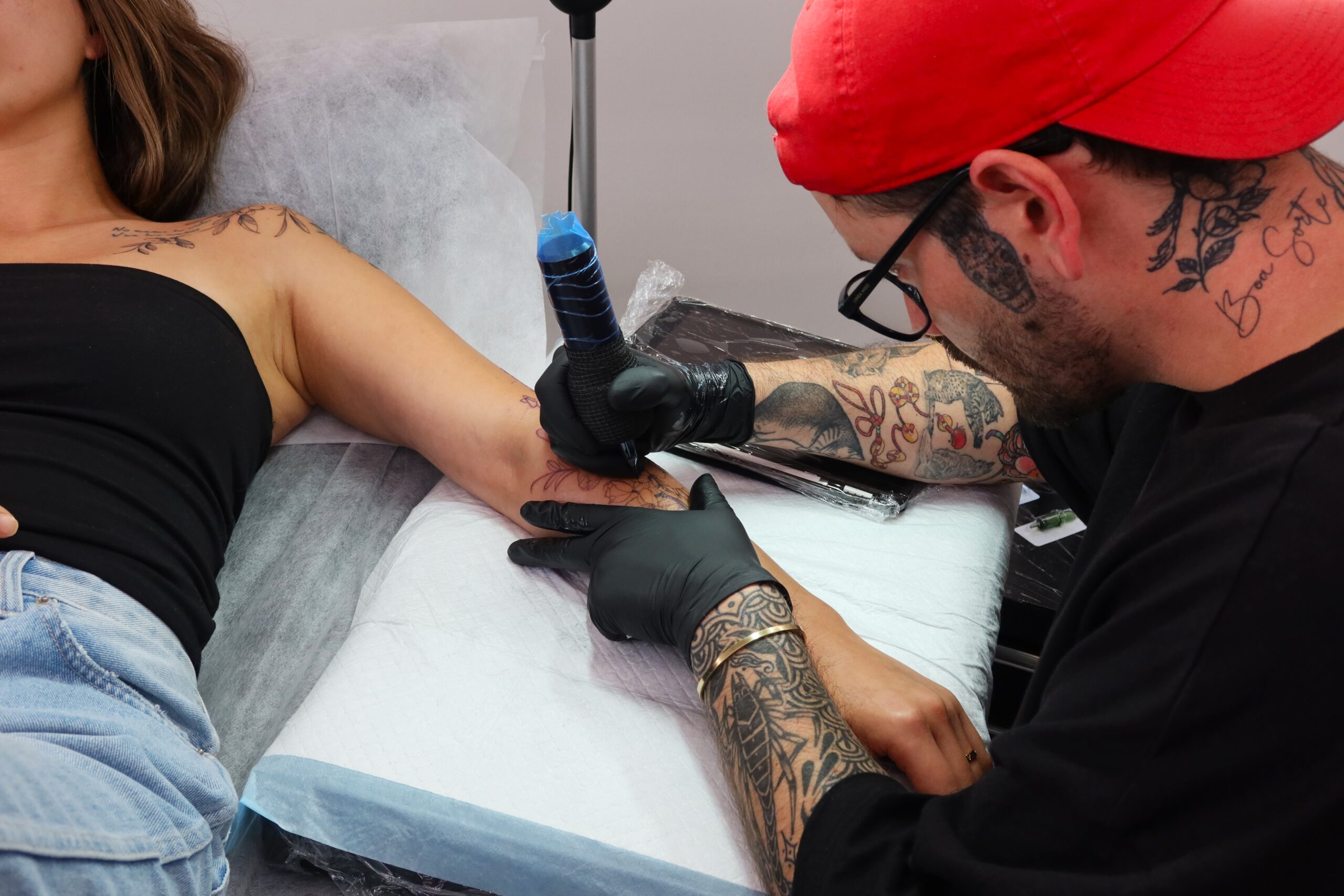
Making the Smart Choice for Your Tattoo Career
The evidence overwhelmingly favours online tattoo courses for aspiring artists seeking efficient, affordable, and comprehensive education. The combination of time efficiency, financial advantage, educational quality, and geographic accessibility makes online learning the logical choice for modern tattoo artists.
Traditional apprenticeships served their purpose in an era of limited information access and closely guarded techniques. Today, clinging to this outdated model wastes time, money, and talent. Online tattoo courses represent evolution, not compromise—delivering superior outcomes in fraction of the time at fraction of the cost.
The choice is clear: spend 2-3 years in unpaid servitude hoping for sporadic teaching moments, or invest 6 months in focused education while maintaining your income and life balance. The tattoo industry needs qualified artists now, not in three years. Online tattoo courses meet this need while respecting students’ time, intelligence, and financial reality.
